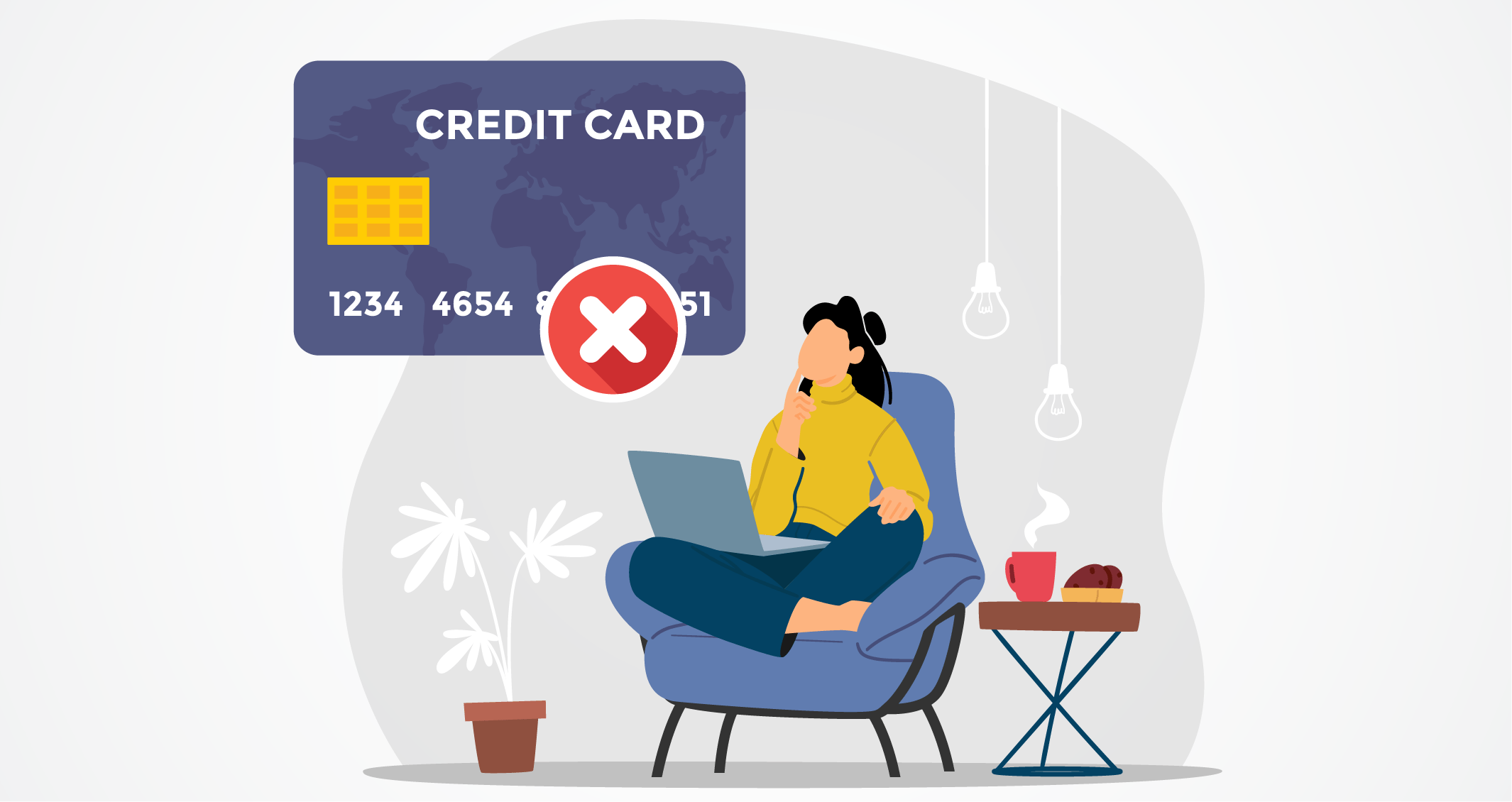The Next Step After Your Credit Card Request is Rejected

Owning a credit card is a great advantage to customers due to the many offers and benefits you can receive through it. These include discounts, cashback, reward points, and much more. Each kind of benefit can often be linked to a specific credit card type, which makes having a select few very handy for most purposes.
People may not take into consideration that not everyone can be eligible for such services right off the bat. Multiple factors are responsible for being eligible for one, as lenders need to assess your eligibility first, along with other details and mandatory procedures. In situations of your application’s rejection or any such unfavourable outcomes, try not to be disheartened and instead work towards raising your credit card eligibility.
Why Was My Application Rejected
1. No prior credit history
The first aspect most lenders look for is a credit score linked to the applicant and other such relevant details. If this is the first time you are trying to get a credit, then your credit score will be non-existent. Not having one usually serves as a stop-gate against qualifying for a card and discourages most lenders from providing you any credit.
Solution: Conducting research and opting for a select few banks that are willing to provide you credit as a fresh applicant can give you a good head start. In addition, this serves as an avenue to develop your portfolio and credit score. Alternatively, going for secured loan is a sure-shot way of obtaining credit and increasing your score after successive loan/EMI repayments.
2. Multiple credit cards held
Conversely, having too many credit cards can be problematic for you in the long run as providers could soon begin doubting your integrity with another application for the same. This is because it could appear as an indicator of mismanagement of your funds. Additionally, utilising too many credit cards can result in overwhelming debts to pay off when the bills arrive.
Solution: Restricting the number of cards held with you can help raise your eligibility for another important one for later. Ideally, you should own about 2-3 cards that serve your requirements. You can ask your current providers to raise your existing credit limit.
3. Repeated defaults in loan/credit card repayments
Constantly defaulting on all your loans, EMIs, or credit card repayments for extended durations, can drastically reduce your credit score. This will make you ineligible for availing another credit card anytime soon. Lenders will usually take note of your non-repayments and report the same to bureaus such as CIBIL.
Solution: Paying off all your dues and in time is crucial in maintaining a good credit score that will help raise your eligibility for a credit card. Once you make consistent payments on time, credit bureaus will be notified of the same and your score will increase accordingly.
4. Erratic work history
Besides the credit history, credit card providers also look for an applicant’s work history to determine your eligibility. This is because they are looking for individuals who have the financial ability to repay dues on time and consistently with a stable source of income. If lenders sense that you do not stick with one job for too long, then they may be unwilling to provide you a credit card.
Solution: Staying employed at one company for a long period of time can help raise your eligibility for a credit card along with your career journey. Having a good professional track record can also help for the same, if you are required to produce it.
5. Low-income threshold
Chances are, you may have been rejected for a credit card because you did not meet the minimum income requirements. Most often, providers look for an applicant’s monthly net income i.e., your earnings after tax and other deductions. They may not outright advertise or mention this on the application portal, but each lender has set up a minimum such threshold internally.
Solution: Look for providers that offer you a credit card with your current income levels or those that do not depend on criteria such as a credit score. For this, you may have to contact lenders directly to obtain such information.
6. Incomplete applications
Application for a credit card may seem like a tedious process, due to the number of back-and-forth interactions you may have to have with a provider. These often happen in a very scheduled manner, and it is entirely possible that you may have missed out on a step to complete your application process.
Solution: Make sure to fill every entry in any sheet provided to you, submit all required documents when asked for, and respond to all forms of communication they attempt. If needed, follow up with providers if something seems to be stuck from their end. Doing this will help ensure you receive a credit card, provided you meet all other eligibility criteria.
Alternative Solution: Get an EMI Card/ Secured Credit Card
You can avail a secured credit card which does not depend on credit history and other verifications. Your secured credit card is backed by your fixed deposit, so you get to earn interest on your deposit while you spend. If you want a credit card because you want to convert your purchases into EMIs then you can go for an EMI Card. For example, the Bajaj Insta EMI Card lets you convert all your purchases into No Cost EMIs with a quick and easy digital application process.
Obtaining a credit card may seem like a trying process but it is nevertheless essential building a credit history. It is important to stay within your means and only apply for those you are certain you may be eligible for based on your income, credit history, and more. Apply for a lucrative secured or unsecured credit card with multiple benefits today on Bajaj Markets!
